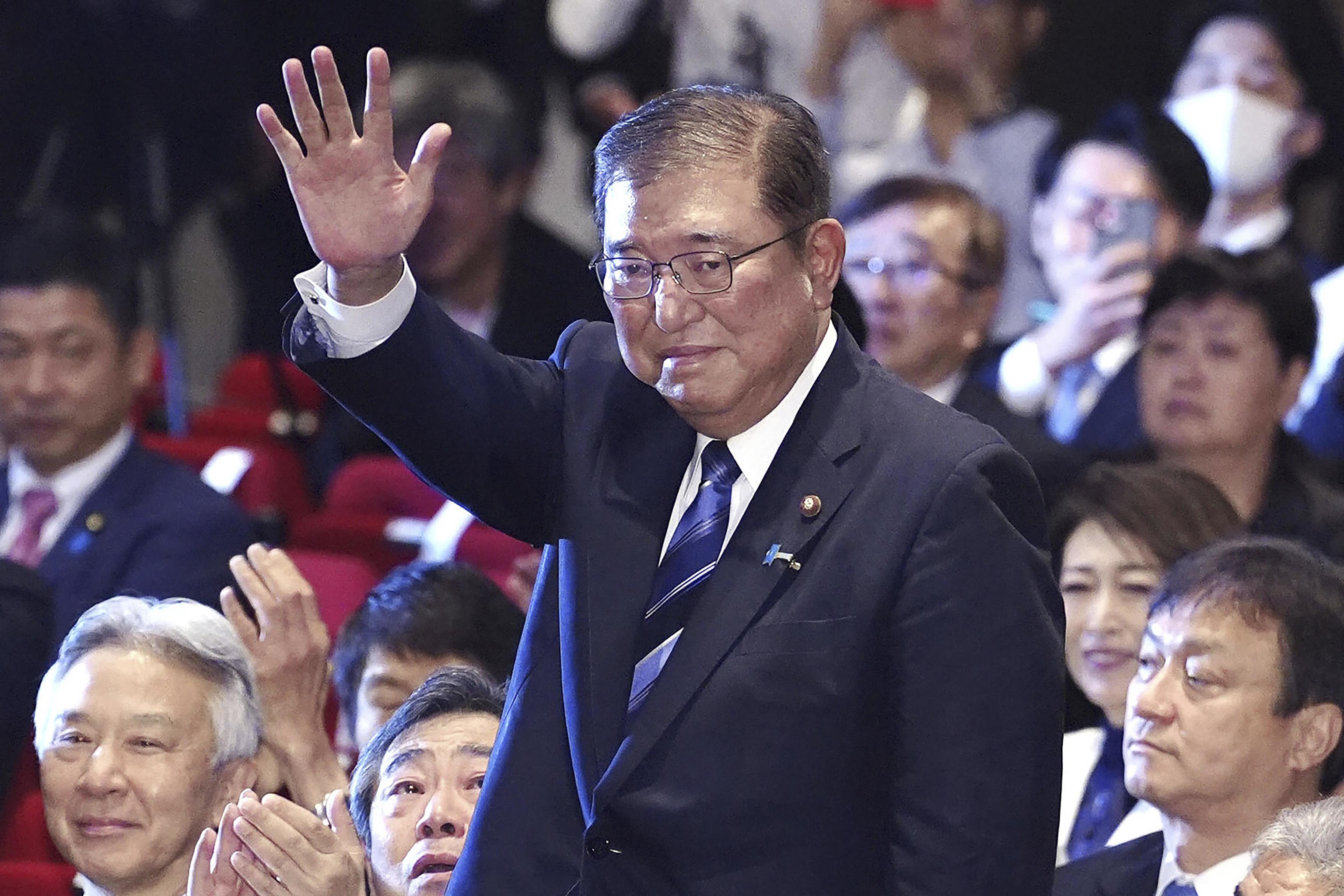The party leadership win is a ticket to the top job because the Liberal Democratic Party's ruling coalition currently controls the parliament.
Considered a defense policy expert, Ishiba has proposed an Asian version of the NATO military alliance and a more equal Japan-U.S. security alliance. Ishiba is a supporter of Taiwan' s democracy. He calls for an establishment of a disaster management agency in one of the world's most disaster-prone countries.
Ishiba beat out Economic Security Minister Sanae Takaichi, a staunch conservative who was running to become the country's first female prime minister.
A record nine lawmakers, including two women, ran in a vote decided by LDP members of parliament and about 1 million dues-paying party members. That's only 1% of the country's eligible voters.
The moment his victory was called, Ishiba stood up, waved and bowed many times in a gesture of appreciation for the support for him.
He pledged he will have the party once again become one that is humble and fair and open to active discussion. "I will devote all my body and soul to make Japan a safe and secure country where everyone can live smiling."
Outgoing Prime Minister Fumio Kishida has been dogged by party corruption scandals, and the LDP wanted a fresh leader in hopes of regaining public trust before a likely general election.
Some experts believe that party turmoil could mean that Japan will return to an era similar to the early 2000s, which saw "revolving door" leadership changes and political instability.
A succession of short-lived governments hurts Japanese prime ministers' ability to set up long-term policy goals or develop trusted relations with other leaders.
On Tuesday, Kishida and his Cabinet ministers will resign. Ishiba, after being formally elected in a parliamentary vote, will then form a new Cabinet later in the day.
Kishida congratulated Ishiba's victory and said Friday marks the first step for a new LDP.
"LDP will reborn, and will live up to the people's expectations and achieve results," he said. As Japan faces security tension in the region and elsewhere, Japan must step up its own defense power and ties with the United States, "and help the world become a place of cooperation instead of divisions," he said. "I will support the new administration with all my strength as ," he said.
Some experts believe that party turmoil could mean that Japan will return to an era similar to the early 2000s, which saw "revolving door" leadership changes and political instability.
A succession of short-lived governments hurts Japanese prime ministers' ability to set up long-term policy goals or develop trusted relations with other leaders.
The main opposition — the liberal-leaning Constitutional Democratic Party of Japan — has struggled to build momentum, despite the LDP scandals. But experts say its newly elected leader, centrist former Prime Minister Yoshihiko Noda, is pushing a conservative shift for the left-leaning party and could trigger political regroupings and attract swing voters.
